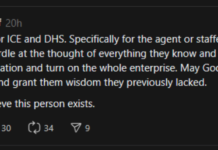The Calcutta High Court has held civil law will not defer to ecclesiastical rulings in matters governed by contract law. The 17 April 2019 decision in the case of the Church of North India v Biswas held a bishop’s employment was not a “personal service” that could be terminated at-will by the church, but a contract governed by the constitution and the canons of the church.
In rejecting the motion to dismiss the Bishop of Calcutta’s complaint against the CNI Executive Synod, the court held the bishop’s dispute with the church was not a “master-servant” relationship, but could be adjudicated as a contract dispute guided by the CNI constitution and canons under the Indian Special Relief Act. “The nature of job performed by the Bishop is thus not a ‘personal service’ insofar as the present dispute is concerned,” held Justice Sabyasachi Bhattacharyya.
The dispute between the Rt. Rev. Ashoke Biswas and the CNI arose over the change in canon law raising the mandatory retirement age for bishops from 65 to 68. On 17 Aug 2017 Bishop Biswas requested a one year extension allowing him to serve until the age of 66, which was approved by the Review Committee of the Executive Committee of the CNI Synod. During this extension period the CNI executive committee adopted the 68 retirement rule.
However in a 22 Aug 2018 letter the Executive Committee of the CNI Synod wrote Bishop Biswas’s extension had expired on 18 August 2018 as the bishop had not filed a timely extension request.
Bishop Biswas objected to this decision arguing he was not required to seek an extension due to the new retirement age rule, and litigation ensued.
In its pleading before the High Court, the CNI argued the bishop’s lawsuit was barred by Section 14(1)(b) of the Specific Relief Act, 1963 as it sought specific performance of a contract of employment of personal nature in the garb of a declaratory suit. According to the Specific Relief Act, 1963, Section 14(b) a contract which runs into such minute or numerous details or which is so dependent on personal qualifications of volition of the parties, or otherwise from its nature is such, that the court cannot enforce specific performance of its material terms, cannot be specifically enforced. The CNI argued the church’s canons stated a bishop was an at will employee of the church.
The bishop responded that he had been elected under the terms of the constitution of the CNI, and that with the CNI Executive Committee’s interpretation of the canons and language of the consecration service was at variance with the words of the CNI constitution.
Bishop Biswas argued that the office of the Bishop was not dependent on personal qualification or runs into minute or numerous details which cannot be enforced specifically by the court. “As regards volition, the concept of ‘master‐servant’ relationship is now obsolete and neither legally or socially a tenable concept. the length or condition of the post of a Bishop is not dependent on the whims or volition of the petitioner but is guided by the constitution of the Church which has a statutory flavour,” his attorney’s argued.
The CNI responded the church’s constitution does not have a statutory flavour and that a conflicts between the constitution and canons should be construed in favor of the canons, as they set forth the statutory framework for the church.
In reviewing the office of bishop, under the constitution and canons the court held:
“[U]ndoubtedly the Bishop works as an employee of the petitioner and is subject to all rigours and benefits attributable to such employment. The religious hierarchy of the petitioner and the spiritual status of the Bishop in such hierarchy could not be an indicator of whether the Bishop is an ’employee’ of the petitioner or not. The status of the Bishop vis‐à‐vis the petitioner, inasmuch as the former’s function at the Church is concerned, is governed by the provisions of the constitution, which admittedly regulates the Bishop’s position and the letter of appointment of the Bishop and the communication by the Bishop for extension of his service. Although the said constitution does not have ‘statutory flavour’ or statutory sanction, it is admittedly the governing charter of the entitlements and duties of the Bishop as an employee, which substitutes the fiat of a ‘master’ in a master‐servant relationship and makes it mandatory that the constitutional provisions, and not the volition or diktat of the parties, are followed in construing the terms and conditions of service.”
The court held that under Indian law, the church’s interpretation of the secular documents was not to be given great authority than the bishop’s.
“Whatever may be the status of the Bishop in the spiritual hierarchy of the Church, the same cannot be a factor to be considered while deciding the issue at hand provisions of the constitution of the petitioner, which govern the appointment of the Bishop, contains several indicators that the service was governed by the rules framed, either by the Executive Committee, or the provisions of the constitution itself.”
“The petitioner’s argument that since the Executive Committee could decide on the fate of the service of Bishop, there exists a master‐servant relationship between the parties, cannot be accepted. It is not the body of persons comprising the Executive Committee or the petitioner itself (which is, in any event, a juristic person) who decides the fate of the opposite party at their whims. The rules framed by the Executive Committee under the authority granted by the constitution of the petitioner and the provisions of the constitution are the determinants of whether the Bishop’s service could be revoked.”
“Despite master‐servant relationship being no longer the whims and fancy of the employer in dealing with the employee as it used to be in the hoary past, there still has to be an ingredient of the volition of the employer and a personal nature of service to invoke the bar stipulated in Section 14(1)(b). Since in the present case, the recalcitrance of the opposite party is not an issue at all, but the bone of the contention being the superannuation age of the opposite party, the concepts of master-servant relationship and personal service cannot be imported to define the relationship between the parties.”
“Moreover, the service of the Bishop with the petitioner is not dependent merely on the volition of the parties and the nature of service rendered by the Bishop is not of a personal nature. No personal skill or personal ingredient, exceptional from all other jobs, is present as an element of the Bishop’s functions,” said Justice Bhattacharyya in finding in favor of Bishop Biswas.
CNI v Biswas 2019.04.17 by George Conger on Scribd



